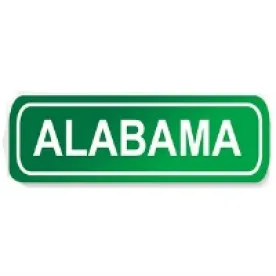Strikes have been in the news recently. Employers faced with a strike, or a possible strike, often wish to know their legal options, including whether they may seek injunctive relief. The short answer is that federal law prohibits courts from enjoining employees’ exercise of their right to lawfully strike. However, courts may enjoin unlawful strike conduct, depending entirely on the facts of the labor dispute. This is illustrated in Warrior Met Coal Mining, L.L.C. v. United Mine Workers of America International, et al., No. CV-2021-900285.00 (Ala. Cir. Ct., Tuscaloosa Cnty. Oct. 27, 2021 ). There, an Alabama state court judge took a relatively unusual action in a violent labor dispute: temporarily prohibiting all picketing at the employer’s properties.
Courts have limited injunctive authority in labor disputes, with specific differences between state and federal laws. Federal law prescribes rigid procedural requirements for issuing an injunction in a private sector labor dispute. Under federal law, courts are prohibited from enjoining the following (among others): (i) striking or refusing to work in protest; (ii) becoming a union member; (iii) paying or withholding unemployment benefits, insurance, money, or things of value to a person participating in a labor dispute; (iv) providing legal assistance to those involved in a labor dispute; (v) picketing or other public displays of support for or opposition to labor practice; (vi) peacefully assembling in public or private; and (vii) agreeing to or urging others to engage in or refrain from any of these activities. See 29 U.S.C. § 104. However, a strike may be unlawful if it has an unlawful objective or if unlawful means are employed. Unlawful objectives include inducing or engaging in a strike for secondary purposes, striking for jurisdictional or work-assignment purposes, and striking for recognition of a union as bargaining agent under certain conditions. Unlawful means include sit-down strikes, minority strikes, partial strikes, work slowdowns, and picket line misconduct or violence, among others. Courts may also enjoin strikes that are in contravention of a no-strike agreement, or in some circumstances work stoppages over disputes subject to a grievance and arbitration procedure in a collective bargaining agreement.
When an employer seeks injunctive relief in federal court prohibiting any of the above labor activity, it must show why the conduct at issue should be enjoined. A court can issue an injunction only where it finds: (i) the unlawful acts will continue unless restrained; (ii) substantial and irreparable injury will occur if the action is not enjoined; (iii) the balance of hardships between the parties favors the injunction; (iv) there is no adequate remedy at law; and (v) public officers are unable to furnish adequate protection to protect complainant’s property. See 29 U.S.C. § 107. Injunctions are not granted lightly.
Despite the onerous federal requirements, employers may have the option to seek an injunction in state courts if strikers engage in unlawful conduct. States can use their police powers to regulate behavior and enforce order within their territory to protect the health, safety, morals, and general welfare of their inhabitants. State courts can issue injunctions prohibiting unlawful conduct during a labor dispute to protect the public without enjoining the labor dispute itself.
Employers may seek injunctions in state court for conduct such as mass picketing, violence, threats of violence, property damage, blocking or attempting to block ingress or egress of vehicles at employer’s facilities, and acting recklessly on public roads, as they are areas of traditional state concern not generally subject to preemption principles. For example, in Warrior Met a state court judge issued a temporary restraining order prohibiting the union and striking employees from picketing outside Warrior Met’s properties. The judge issued the order based on video evidence showing picketers attacking non-strikers, personal vehicles, property, and uninvolved community members and interfering with company operations. While state courts still rarely issue injunctions relative to labor disputes, they have broad authority when labor activity poses a threat to the public’s health and safety.
Lawful strikes and picketing cannot be enjoined; but, where a strike or picketing includes dangerous or threatening conduct, there may be possible grounds for injunctive relief. Of course, such unlawful conduct does not occur in most labor disputes.







 />i
/>i

